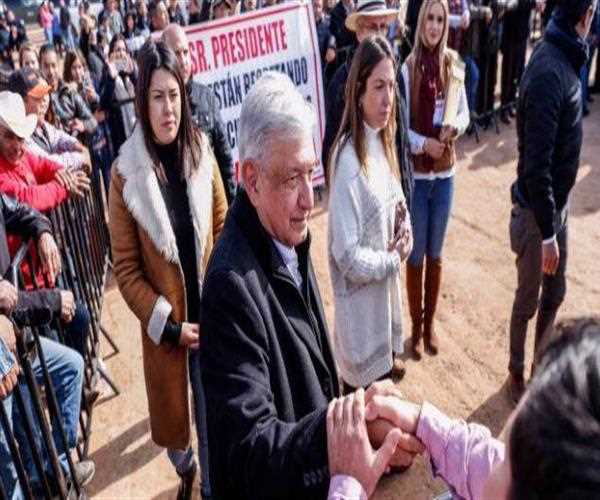Search here

02-May-2020
Populist Politics During Coronavirus Pandemic
Playing text to speech
US President Donald Trump proposed that infusing them with family unit disinfectant may fix individuals of the coronavirus. Filipino President Rodrigo Duterte requested police and military to shoot dead anybody "who makes inconvenience" during the stay-at-home period.
Also, in Mexico, President Andrés Manuel López Obrador denied for quite a long time that the infection was a risk and kept on embracing and warmly greet supporters, just to flip abruptly and force a serious lockdown all of a sudden.
Since populist pioneers of both the privilege and left have topped the positions of ineptitude during the pandemic, it has gotten regular to guarantee that they could before long become its political casualties. Tsk-tsk, this might be unrealistic reasoning. The infection is deadly and heartless, however alone it won't level the populist virus bend.
The emergency has had one solid result: reestablishing a pinch of regard toward aptitude. Subsequent to making stigmatization of specialists a trademark of their political professions, both Trump and UK Prime Minister Boris Johnson have been compelled to hold public interviews with their logical guides, who have straightforwardly repudiated their managers when required.
Surprisingly more terrible, Trump has needed to bear the outrage of a survey indicating that Anthony Fauci, the administration's top irresistible sickness master, appreciates an endorsement rating about twice as high as his own.
This is one negative mark against the counter elitism that has moved populists to control. Be that as it may, different factors despite everything work in support of them. Wild-peered toward populists are absolutely not by any means the only ones creation a hash of things. Spanish Prime Minister Pedro Sánchez and Italian Prime Minister Giuseppe Conte – not populists themselves, however they have populist junior accomplices in their alliance governments – have the unenviable record of driving nations that are world pioneers in per capita coronavirus passings.
Also, who at any point said that realities drive political inclinations, at any rate? The heaviness of phony news and personality driven governmental issues might be rising, not falling, in the period of COVID-19. Trump reprimanded China for the infection and cut off the US to transients, and his base cheered. Brazil's President Jair Bolsonaro followed a similar content, guaranteeing that the coronavirus emergency is a media stunt. As a disease transmission expert from the University of São Paulo put it: "Maybe everyone's on a similar train heading towards a bluff edge and somebody says: 'Post! There's a precipice!' And the travelers yell: 'Goodness there isn't!' And the train driver says: 'Better believe it, there's nothing there!'"
Since building up causal connections is hard (Are lockdowns viable in easing back the pace of infection? Are monetary developments compelling in hauling the economy out of downturn?), a great many people don't hope to show up at answers all alone. Rather, they look to other people who guarantee to know, and afterward they adhere to a straightforward dependable guideline: Believe individuals with whom I can recognize, who talk and act as I do, and who are probably going to share my qualities and settle on the choices I would have made on the off chance that I had enough data.
That is the reason voters trust populist legislators and doubt the political foundation, pioneers of customary organizations and, as of not long ago, specialists and technocrats. Regardless of whether populists pick up or lose politically from the pandemic in this way relies upon whether the emergency fortifies or further debilitates trust in equitable foundations.
The anguish and death toll during World War II had been horrendous. In any case, in numerous nations, residents could conceivably infer that we are in this together, and together we will assemble a superior tomorrow.
Things being what they are, which one will it be, 2010 or 1945?
While it is too early to tell, the ceremonial acclaim for bleeding edge wellbeing laborers, regardless of whether in New York, Madrid, Paris, or Istanbul, is suggestive of the soul of 1945. In my edge of London, neighbors develop each Thursday reliably at 8:00 p.m. not exclusively to praise the National Health Service, yet in addition to exchange stories and offer each other assistance with shopping or with a youngster who needs taking care of.

Comments
Solutions
Join Our Newsletter
Subscribe to our newsletter to receive emails about new views posts, releases and updates.
Copyright 2010 - 2024 MindStick Software Pvt. Ltd. All Rights Reserved Privacy Policy | Terms & Conditions